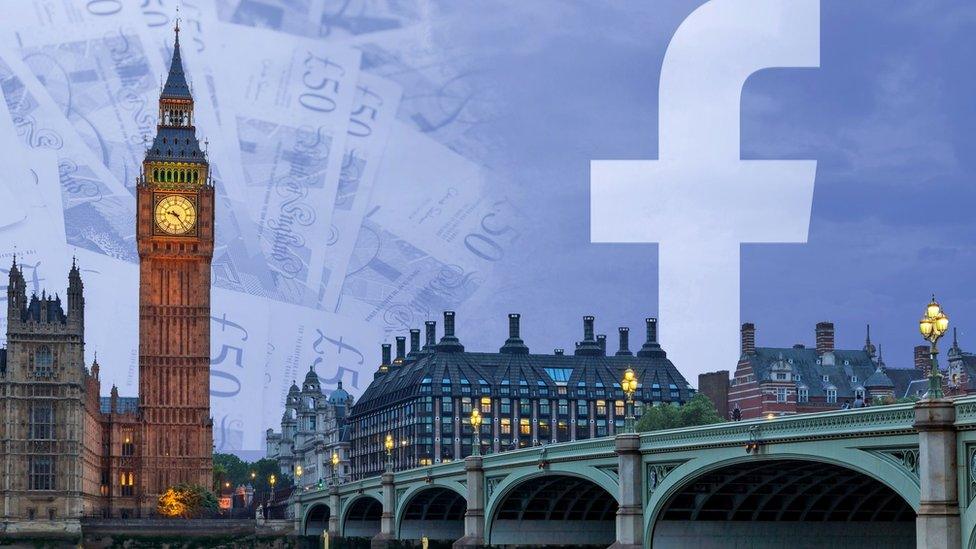Facebook's UK political ad rules kick in
- Published

Facebook has started to enforce its tighter political advertising rules in the UK.
The new rules were supposed to take effect on 7 November, but were delayed when journalists and researchers exposed flaws in the new system.
Anybody placing political ads on Facebook must now verify their identity and location and prove who is paying for the advertisement.
The changes have been made following the Cambridge Analytica data scandal.
Political advertisements relating to candidates, elections, referenda and political causes are all affected by the new rules.
People buying the ads must provide their identity by submitting ID, which will be verified by a third party.
They must also demonstrate they have a UK address by responding to a code sent by post.
Political ads will also be kept in a public record for several years.
"Enforcement on these ads will never be perfect, but we'll continue to work on improving our systems and technology to prevent abuse," the company said in a statement.
The new rules were delayed after news site Business Insider was able to buy an advert declared as "Paid for by Cambridge Analytica".
Facebook said it had since made improvements to its checks. It will now review what people type in the "paid for" box, and will limit how many times people can edit the declaration.
Facebook was forced to act following controversy about ads it displayed during the 2016 US presidential election campaign and the UK's EU referendum.
In the United States, thousands of ads were bought by Russian groups trying to sow discord. Facebook was under pressure to make sure the same thing did not happen in the run-up to November's mid-term elections.
- Published23 November 2018

- Published31 October 2018

- Published16 October 2018
- Published8 November 2018
